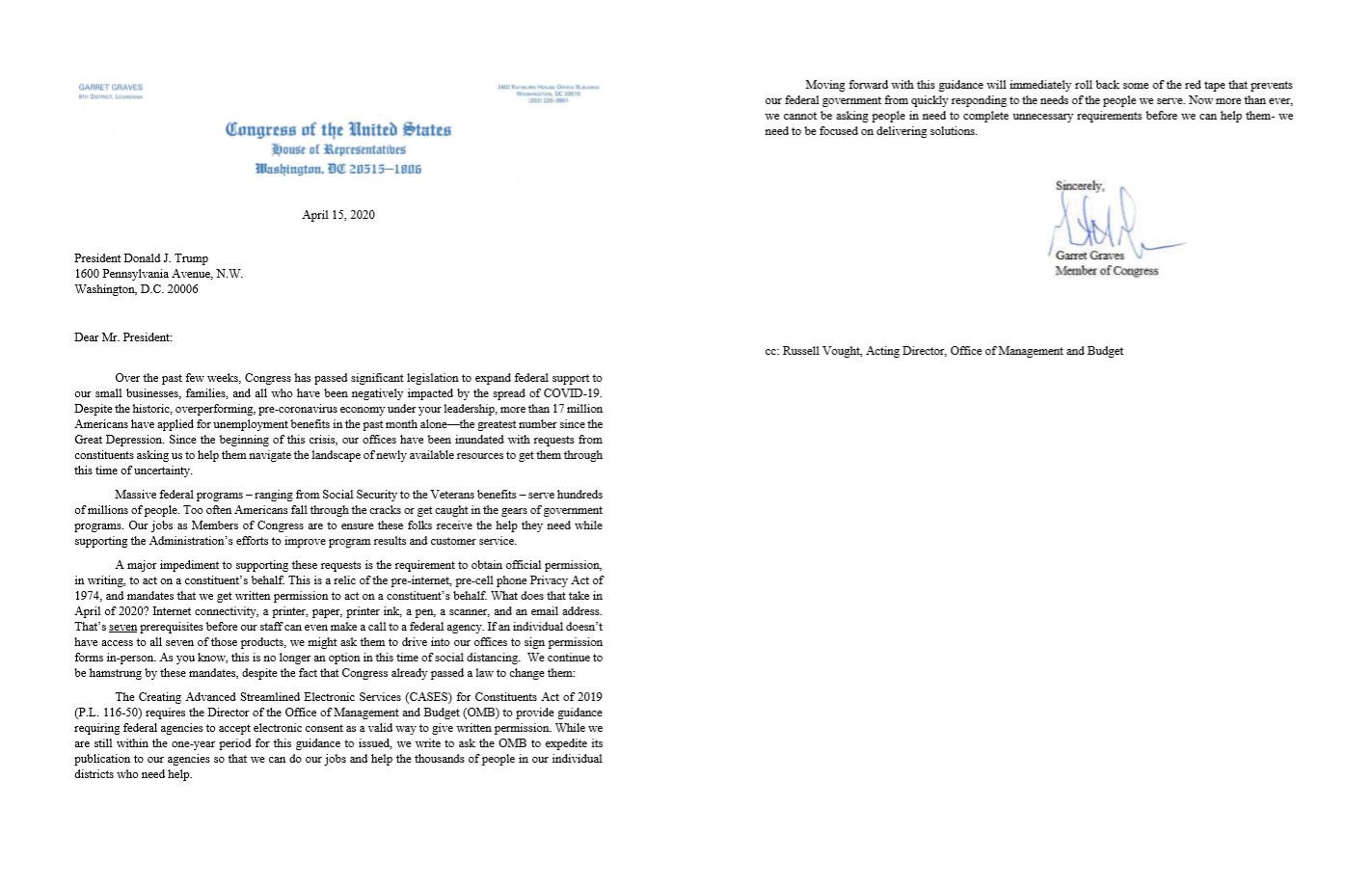Press Releases
Graves Urges POTUS to Expedite Electronic Consent Guidelines to Cut Red Tape and Accelerate Assistance During COVID-19
Washington, DC,
April 15, 2020
Tags:
Accountability
U.S. Congressman Garret Graves (South Louisiana) sent a letter yesterday to President Donald Trump urging him to finalize pending guidance related to a new law enacted in 2019 that would allow constituents to electronically sign congressional casework consent forms. The Creating Advanced Streamlined Electronic Services for Constituents Act of 2019, bipartisan legislation that Congressman Graves spearheaded with the help of Congressman Joe Kennedy (D-MA), allows electronic signatures to streamline customer service for people in need of casework assistance from their Member of Congress. The new law requires the Director of the Office of Management and Budget (OMB) to issue guidance to federal agencies before electronic consent can be accepted as written permission. 
"Social distancing has hamstrung our everyday tasks – including helping our constituents. If we are unable to physically get signatures from constituents, this prevents the federal government from quickly responding to the needs of the people we serve. It's April 2020 – it shouldn't take seven electronic steps before we can make a call to a federal agency, and that is on the assumption everyone has state-of-the-art technology," Graves said. "While we are still within the one year period for this guidance to be issued, we write to ask the OMB expedite its publication to our agencies so that we can do our jobs and help the thousands of people in our districts who need help." CASES modernized an outdated provision of the Privacy Act of 1974 that required Members of Congress or their staff to obtain written authorization from a constituent before taking action to resolve the individual's case. Read the full letter to President Trump here. Click here to read more about the CASES Act passed on February 11, 2019 in the U.S. House of Representatives, and later signed by Trump into law on August 22, 2019. ### |



